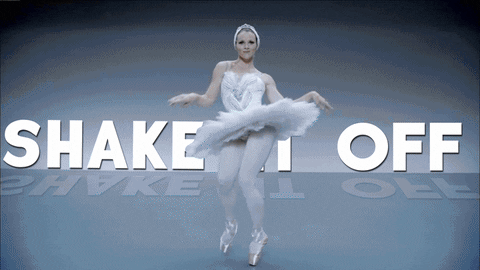Burnout: The Real Thing That's Affecting So Many of Us, and How to Deal With It
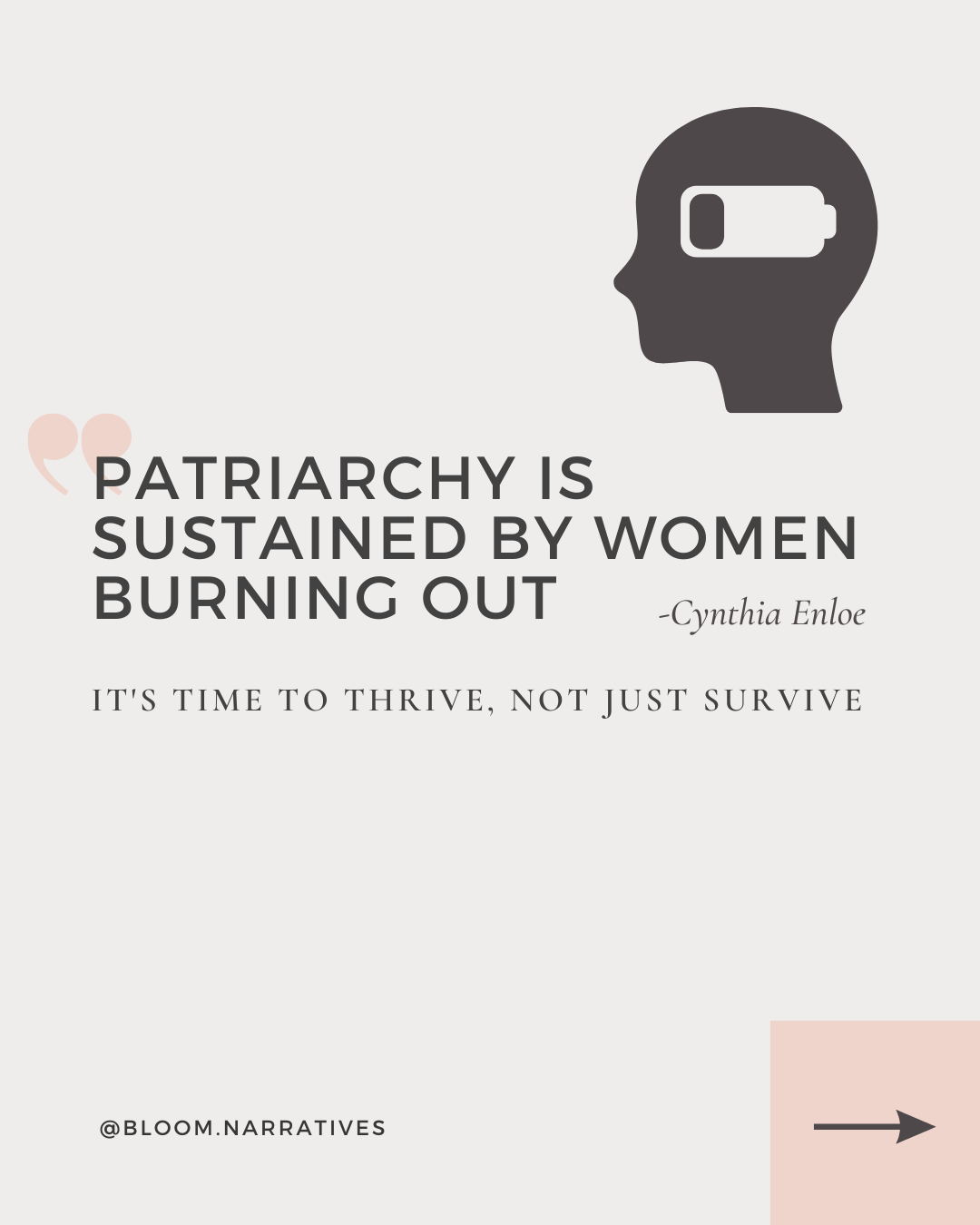
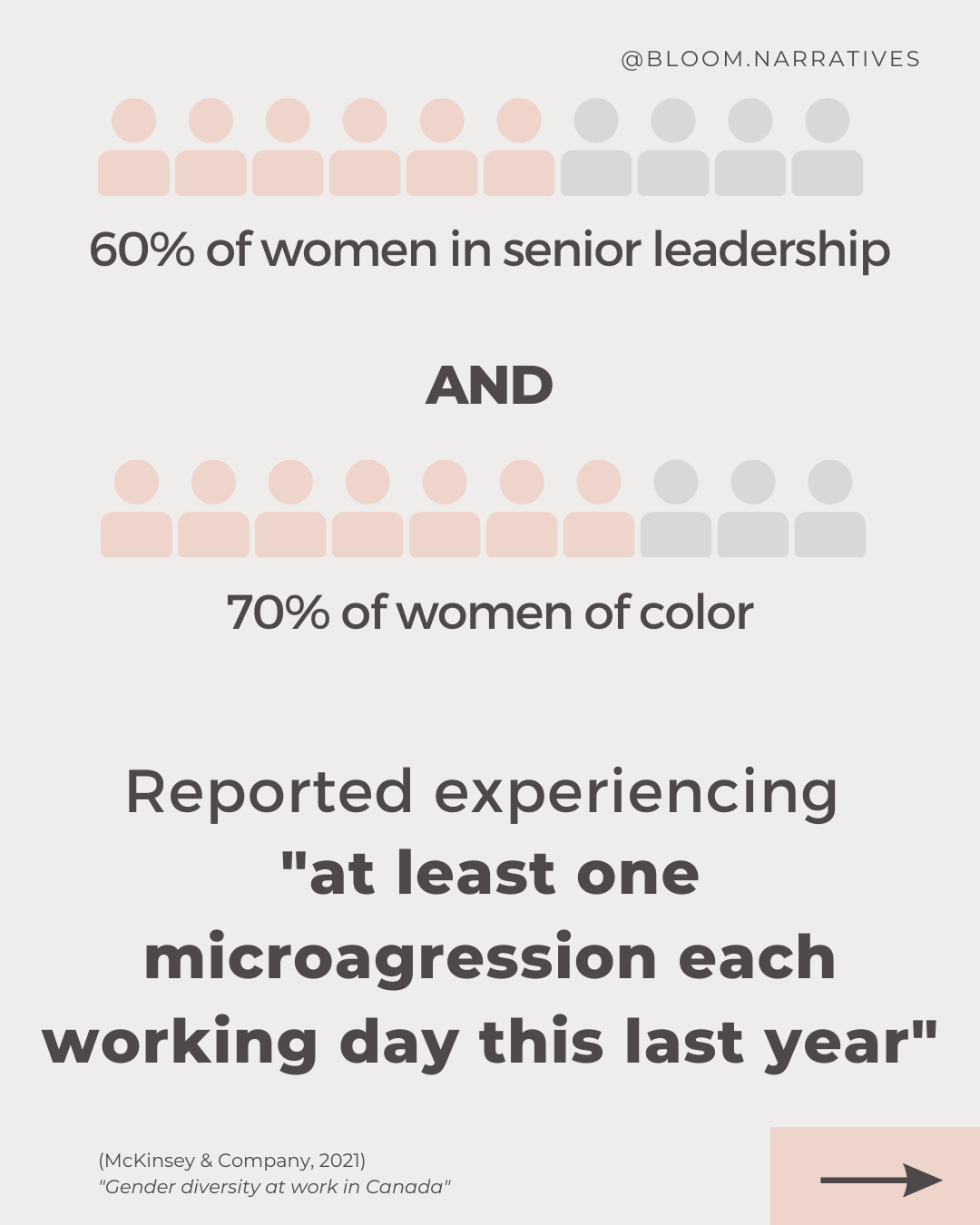
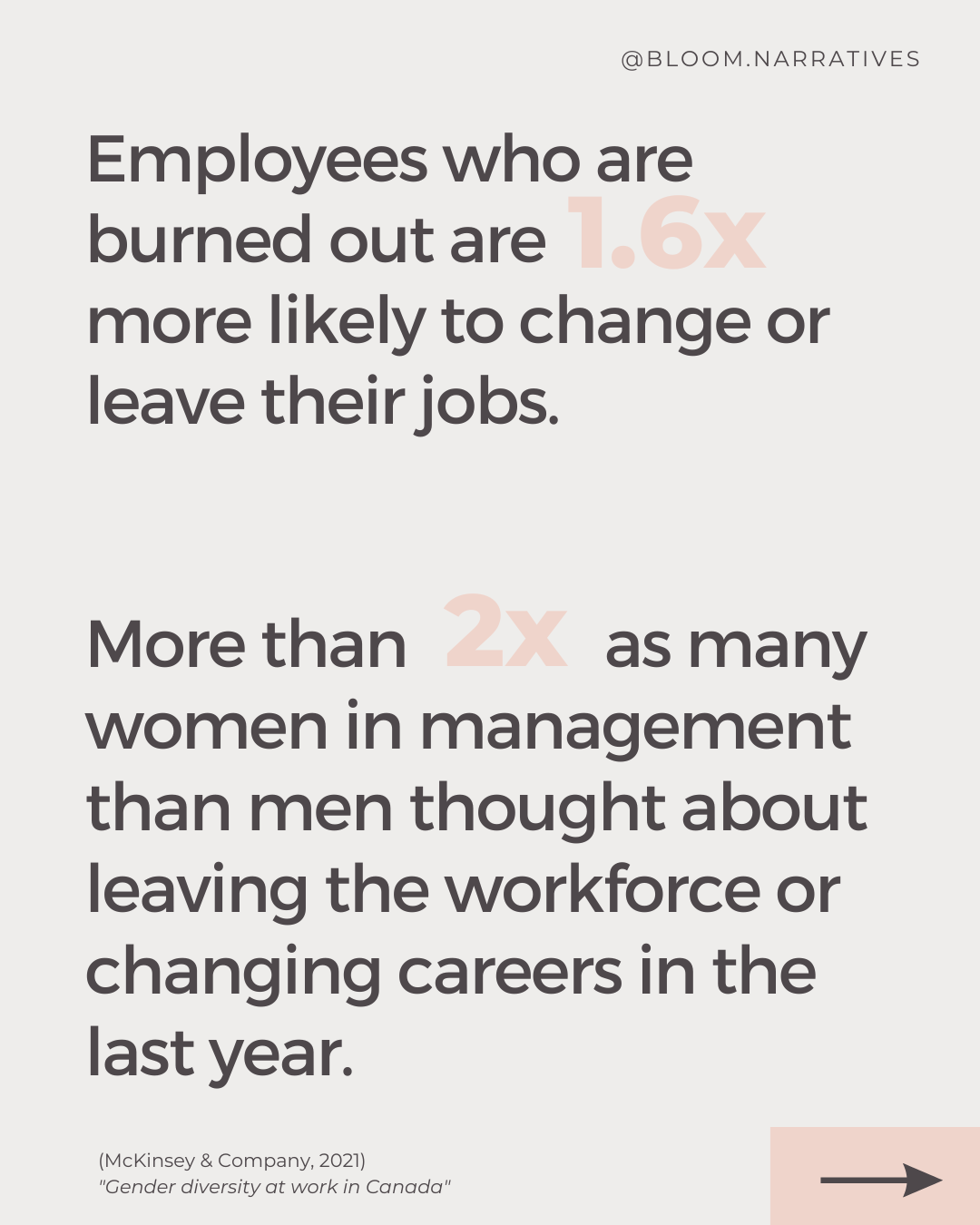
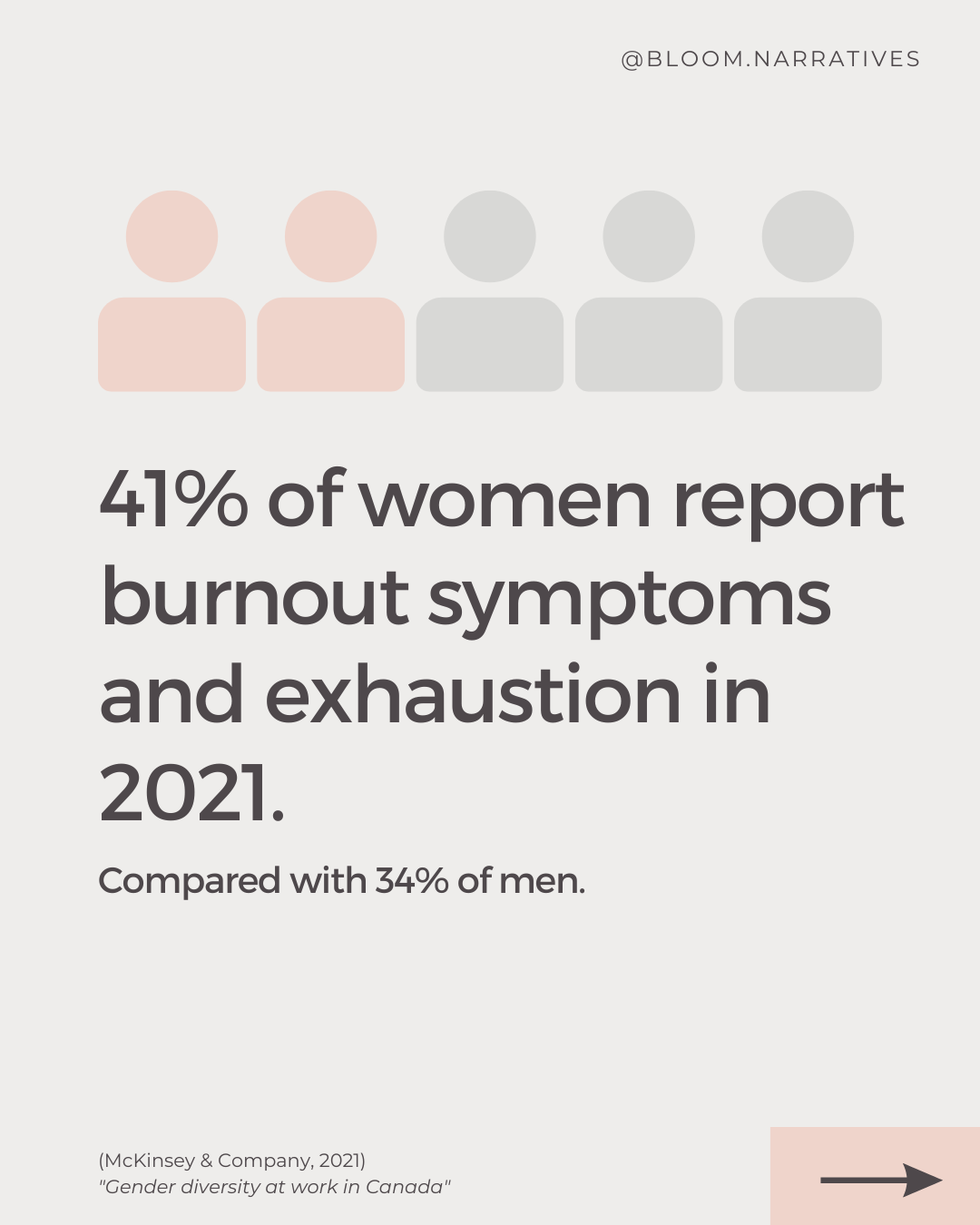
Are you feeling run down and like you can't keep up? Do you feel constantly stressed out? If so, it's time to learn how to recognize burnout symptoms. This guide will help you understand the signs of chronic stress and what to do about them before they become a bigger problem.
We need to talk about burnout. Because it's happening.
It's affecting so many humans (like 40% at least, one study showed) in all aspects of their lives.
And no...it's not cured overnight with a bubble bath or an hour to yourself (I wish it were....).
Burnout is a real thing, and we're here to help. We want to provide you with the resources and information you need to prevent burnout from happening in your life.
What is Burnout?
Burnout is a state of physical, emotional, and mental exhaustion caused by prolonged or chronic stress. It can lead to feelings of detachment, cynicism, and hopelessness. When you're burned out, you may feel like you're just going through the motions, unable to muster up the energy or motivation to do anything else.
Burnout is different from stress. Stress is a normal biological and psychological response to what happens when it is exposed to stressors (i.e. things that activate the fight, flight, freeze, fawn response in the body). Exposure to stressors releases chemicals in the brain to respond to the threat as safely as possible. For example, when you are driving and the person in front of you slams on their brakes, your body automatically responds to that threat. You become highly alert, your muscles tense up, adrenaline flows through the body, and you start to think only in the moment. Now think about what you do after the situation is over. Your body will start to shake, which is a natural response to stress in the mammalian species (ever see a dog shaking--it's stressed. The same thing happens with other mammals). You might call someone and tell them about it, and often there is a deep breath that follows. That is the body taking steps to complete the stress cycle.
Here's another example. If I encounter a wolf in the woods, my brain isn't going to go, "Awwww, what a cute wolf! I wonder where its pack is. Are there any cubs with it? Oh look at the colouring--oh it's so pretty!"
No.
Your brain is going to take over (goodbye logical thinking brain!) and go "Wolf. Danger. Sneak away." And you sneak away. And you either get attacked or you escape, find your community. And here's the part that completes the stress cycle: you process the stress. With this example, once you escape the wolf, you share the story with others, express gratitude for staying alive and safe, and breathe clearly, deeply, and with intention.
When we fail to stop completing the stress cycle, it leads to stress becoming chronic, and if left unchecked, can lead to burnout. Chronic stress can be caused by a variety of factors, including work demands, family responsibilities, financial problems, health concerns, and relationship difficulties. But in short, it's caused by not addressing life stressors on a regular basis or completing the stress cycle when those stressors show up.
What Does Burnout Look Like?
Physical Signs:
Feeling exhausted when you wake up, even if you slept the night before
Your sleep habits have gotten worse (too much/too little)
Lower immunity to germs
Changes in weight, menstrual cycle, or appetite
Head/body/muscle pain
Loss or change in libido
Emotional Signs:
More critical and negative thoughts towards yourself and others
Feeling detached from others or your community
Change in level of motivation
Lower mood
Feeling hopeless and/or a loss of purpose
More irritable, often with a shorter fuse
Feeling trapped or defeated
Increase in cynicism
Decreased satisfaction or hopefulness with community/global concerns
Changes to Behaviour
Loss or lower level of interest in activities previously enjoyed
Decreased social/familial/community engagement
Feeling more distracted and less focused than is typical
Using methods to cope that aren't like your normal pattern (i.e. alcohol, drugs, food, shopping, etc)
Increased level of missing commitments or appointments, being late, or leaving early (more than is typical)
Spiritual disconnection
What Contributes to Burnout?
Human Giver Syndrome
Emily Nagoski and Amelia Nagoski, authors of Burnout: The Secret to Unlocking the Stress Cycle (2020), discuss that the human givers, who incur expectations to always be willing to give of themselves, their time, attention, bodies, and affection to individuals described as the receivers of the givers. They state, "the implication in these terms is that human beings have a moral obligation to be or express their humanity, while human givers have a moral obligation to give their humanity to the human beings. Guess which one women are." (p. xiii).
This imbalance in the human-giving relationship creates a one-sided dynamic which can lead to resentment and ultimately burnout for the giver. Human Giver Syndrome implies that if the giver were to start requesting anything, they don't then fit into that societal role, and may be oppressed, shamed, invalidated, or punished.
Do you wonder why it's hard to ask for help when you are part of a marginalized group? Yep. This is why.
Chronic Stress
As we talked about earlier, when we're constantly under stress, our bodies never have a chance to recover. We're in fight-or-flight mode all the time, and that takes a toll on our physical and mental health. The American Institute of Stress describes chronic stress as "the harmful physical and emotional effects caused by the overproduction of stress hormones in the body."
Some factors that contribute to chronic stress include:
Oppression & discrimination (racism, ableism, targeted discrimination, and harassment)
Feeling unsafe in and area/areas of your life
Work demands (too much responsibility, unrealistic deadlines, unhealthy work environment, etc)
Family responsibilities (caring for children or elderly parents, managing a household, caring for a child or family member with complex needs, etc)
Financial problems (credit card debt, job insecurity, unexpected expenses, etc)
Health concerns (chronic illness, caring for a sick family member, etc)
Relationship difficulties (marital problems, estrangement from family or friends, etc)
Significant life changes (moving to a new city, medical diagnoses, pandemics, etc)
Lack of healthy support system (where you can't share your world safely with the people in your life)
How to Stop the Stress Cycle
Whenever you experience a stressor, get in the habit of completing the cycle by doing the following. You don’t have to do them all, all the time; obviously, it would be better, but let’s be honest. We’re busy, so do what you can, where you are, with what you have.
Move your body.
Humans are the only mammals that don't intentionally shake off stress. So we have to do it manually. Taylor Swift had it right.
Notice your responses and get curious about them
Seriously...you have enough criticism coming your way already. Let's do something different and bring in some kindness and compassion.
Breathe
When we have an active stress response, we breathe shallowly and fast. We need to intentionally slow down the breath with intention. Breathe into and out of your body deeply, pausing between the inhale and exhale.
Laugh
Think of a time when you were laughing hysterically...how did you feel? What were you thinking? This is a great antidote to stress. I remember, on the worst day of my life, my sister got me to watch a comedy. I wasn't hysterical, but I was able to chuckle a little bit and alleviate the pressure I felt on my chest. It helped to keep the panic at bay. When I use it regularly now, I notice the next morning how much lighter I feel.
Positive Interactions
Make a point to reach out and have positive interactions with people in your life, even if it's just for a moment. We are social creatures and we need connections to thrive.
Sleep
Our bodies and minds need time to recover from the day's stress. Make sure you're getting enough sleep.
Eat healthy foods
When we're under stress, we tend to make poorer food choices. Make an effort to eat foods that will nourish your body and give you the energy you need to get through the day.
Take breaks
When we're on constant high alert, we can get overwhelmed and make mistakes. Take time for yourself every day, even if it's just a few minutes, to do something you enjoy.
Find a creative outlet
When we're stressed, we often feel like we're in a rut. Doing something creative can help us to feel more connected to ourselves and our emotions. It can also be a way to express what we're feeling when we can't find the words.
Share and Recieve Affection
This will likely be with someone you feel safe and emotionally connected with. It doesn't have to be physical in nature (though that helps too. A good hug or a long kiss goes a long way to feeling better), but it can be that overall feeling of safety, trust, validation, and understanding that you get from a good conversation. Recently, I have been pretty terrible at completing the stress cycle and was feeling burned out. I went on a camping trip with some of my closest friends, and one friend asked "Sharla...what's wrong?" where I responded, "I'm just tired...", and she responded with such empathy and understanding "I can imagine it's hard to even describe the fatigue because of the stress happening in every area of your life". It was exactly what I needed. With affection, don't underestimate your pets! Snuggling or petting an animal can help by calming, releasing bonding chemicals in your brain, and helping lower that blood pressure.
Connect with your Spirit
This can be done in a number of ways...through nature, art, music, writing, dance, or any activity that helps you to feel more connected to something larger than yourself. It can be something as simple as looking at the stars or taking a moment to appreciate the beauty around you.
Have a cry.
Crying releases chemicals in your brain that help release stress. Plus... it's quite cathartic. Anyone who tells you that crying doesn't help clearly doesn't understand what its purpose is. Ever had a big cry, and when the tears subside you wipe your nose, take a deep breath, and feel a little lighter? No, things might not have changed, but your body has successfully completed the stress cycle at that moment.
Tips for Preventing Burnout
Here's what you DON'T do: Deny your experiences and feelings. Don't do that.
Read "Burnout: The Secret to Unlocking the Stress Cycle" by Dr. Amelia Nagoski & Amelia Nagoski. It's so good.
Set boundaries: Say no to things that you don't have time for, delegate when possible, and make time for yourself.
Make self-care a priority: Eat healthy meals, exercise, get enough sleep, and take breaks throughout the day.
Create a support network: Lean on your family and friends when you're feeling overwhelmed. Don't have one? Come hang out in The Garden! We have created a kind and supportive community to help what society would dictate as 'human givers' connect with others, detox themselves from the patriarchy, and start building a supportive community.
Talk to someone: If you're struggling to manage your stress, consider talking to a therapist or counselor. And be picky about who you see! Human Giver Syndrome might say you have to see the first person you see because 'it's rude to keep looking, but that little voice is lying. Reclaiming your power means you get to choose who you would like to see.
Conclusion
Burnout is real, and it's affecting more of us than we realize. It doesn't discriminate. You can be the most put-together person in the world, but if you're human, you're susceptible to burnout... because you have a human brain, just like me. The good news is that there are things we can do to prevent it, respond to stressors earlier, and once we're in it...we can get out. It will take some work and excellent support, but you can recover from it.
If you're struggling with burnout, or think you might be heading that way, know that you're not alone. Reach out to your support network, talk to a therapist, make self-care a priority, and set boundaries. And remember...it's okay to ask for help. Asking for help is a sign of strength, not weakness.
Hi, I’m Sharla Crowie,
I’m a Registered Social Worker who specializes in working with women to heal anxiety and all the fun it brings to the party, ADHD superpowers, disordered eating, shame, and trauma.
I founded Bloom Narratives, a private practice that provides holistic wellness services.
Why? So you can be a game-changer in your life. Because healing people heal people.



